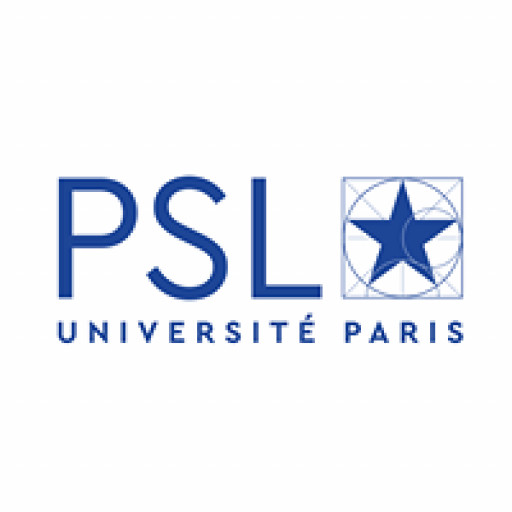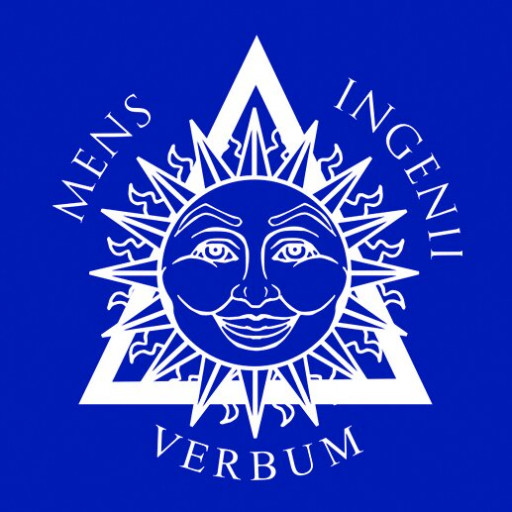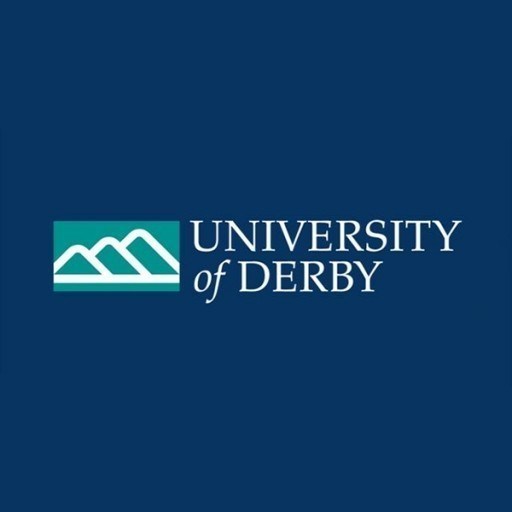Photos of university / #psl_univ
Description: The Cognitive Science master's program at PSL Research University offers an interdisciplinary and comprehensive approach to understanding the mind and intelligent behavior. This program integrates insights from psychology, neuroscience, computer science, philosophy, linguistics, and anthropology to provide students with a broad understanding of cognitive processes and their underlying mechanisms. Designed for those interested in exploring how the human mind works and how artificial intelligence can be modeled after natural cognition, the program emphasizes both theoretical knowledge and practical skills. Students will engage with cutting-edge research, develop critical thinking, and acquire expertise in experimental methods, data analysis, computational modeling, and philosophical inquiry related to cognition. Courses cover a diverse range of topics, including perception, learning, memory, language processing, decision making, and consciousness. The program also offers opportunities for interdisciplinary research projects, collaborations with laboratories, and internships, fostering a rich academic environment that encourages innovation and discovery. Graduates of the program will be well-equipped for careers in academia, research institutes, technology companies, or healthcare sectors, where an understanding of cognitive processes is valuable. The MSc in Cognitive Science at PSL Research University aims to prepare students to contribute to the advancement of knowledge in this rapidly evolving field and to apply their skills in practical, real-world settings. With a focus on both human and artificial cognition, this program provides a unique platform for exploring the complex nature of intelligence and developing solutions to contemporary challenges in technology, medicine, and education.
During the M1 year, the majority of classes focus on the student’s initial discipline, to solidify fundamentals. The remainder of first year courses cover core curriculum in methodology and include an intensive introduction to the concepts and tools required in the remaining areas of cognitive science. Students also complete specialized internships and mini internships during their first year, at partner laboratories of the CogMaster program.
The program’s fundamentals, covering 5 academic areas, are taught in partnership with other university programs affiliated with the CogMaster:
- Theoretical and Experimental Linguistics and Logic with ENS and Paris VIII.
- Mathematical Modeling, Physics and Informatics with Paris V and ENS-Cachan.
- Cognitive Neuroscience with ENS and Paris VI.
- Philosophy and Social Science with EHESS, ENS and Paris IV.
- Experimental Psychology with Paris V.
At the close of the M1 year, students are expected to have honed their skills in the field of their major to a level equivalent to a single-field M1 program level. Students additionally are expected to have assimilated the concepts, methods and key questions of cognitive science, and to have solid knowledge of the bibliographical sources in this arena. Finally, students are expected to have acquired the skills necessary for conducting critical analysis of existing literature, to prepare a cohesive research project in preparation for applying for the second year of the Master’s (M2).
In the M2 year, students are exposed to current research in cognitive science, and must perform research at a partnering laboratory. The study of cognitive science is an intellectual pursuit of significant scope. Our program does not claim to cover all possible approaches. Rather, we have opted to focus on fields represented by local expertise, and to select a small number of areas in which students can benefit from the necessary close supervision and guidance provided by the scientific laboratories that host the program, all of which are among the world’s best.
This necessary honing of the program is nonetheless supplemented by our international network of European partners, which provides CogMaster students exposure to supplementary education in areas not covered.
The scope of the CogMaster program therefore mirrors the strengths and expertise of the program’s affiliated laboratories. The program is structured around five main themes: Social cognition, upper cognitive functions, genetics, development and plasticity, language and communication, perception and action. Through these themes, students gain access to truly multidisciplinary credit hours (U.E.) and exposure to 3 or even 4 different teaching methodologies around a same topic of study.
At the close of the M2 year, students should be capable of successfully conducting an original and integrative research project in cognitive science. This includes the capacity to formulate a problem set, explore that problem set against existing literature, develop an experimental or theoretical approach for solving the problem set, analyze results obtained, and compare results to published papers in that area. Students will also be required to draft a technical report along the lines of a scientific publication, and to clearly and concisely defend the report in public.
This program is intended for students who have received a Bachelor’s in a field of cognitive science: psychology, biology, linguistics, philosophy, informatics. The program is also open to medical students and engineering students from France’s Grandes Écoles.
Students are expected to have a keen capacity for assimilating knowledge and for investing the individual work necessary to become conversant in fields they do not yet know. Apart from the qualities required for any type of research work (attention to detail, meticulousness, skepticism, curiosity, independence, initiative), students must have solid oral and written communications skills.
The financing of the Cognitive Science program at PSL Research University is primarily supported through a combination of university funds, government grants, and international research funding. Students may have access to various scholarships, fellowships, and financial aid options offered by the university to assist with tuition fees and living expenses. PSL Research University actively collaborates with private sector partners and research institutions, which sometimes provides funding opportunities for students engaged in joint projects or internships. Additionally, there are specific grants allocated for research activities within the Cognitive Science discipline, encouraging students and faculty to pursue innovative projects. The university also participates in national and European funding programs, such as Horizon Europe, to support broader research initiatives that benefit students and staff. Tuition fees for international students are set according to the university's fee structure and may vary depending on the program duration and specific specialization. The university website provides detailed information about available scholarships, application procedures, and eligibility criteria. Students are encouraged to explore funding options early and consider applying for multiple sources to maximize support. PSL Research University emphasizes an inclusive approach to education, ensuring that financial constraints do not prohibit talented individuals from enrolling and succeeding in the Cognitive Science program. In some cases, work-study opportunities and part-time positions within the university or partner organizations can help students offset costs while gaining practical experience. Overall, the financing structure of the program is designed to be flexible and comprehensive, supporting a diverse student body and promoting cutting-edge research in cognitive science.
Why CogMaster?
CogMaster provides a rather unique training opportunity in Cognitive Science in Europe. It rests on a very successful 20 years teaching experience within the Paris research community, which stabilized in an integrative training program open to students with very diverse scientific backgrounds. It draws resources from some of the best Parisian universities and deploys 1100 hours of teaching provided by the best specialist of the field in France. It provides a hands-on research training program through direct immersion into some of 40 internationaly recognized research teams in the Paris area. Cogmaster training rests on five principles:
- Strong mono-disciplinary foundation. Our program reinforces the teaching in the student's main disciplinary sector through a selection of the courses provided by our 4 partners which are mostly relevant to cognitive science.
- Strong methodological training. We provide courses in some of the basic methodological and conceptual tools used in cognitive science (experimental design, statistics, brain imagery methodologies, programming, etc.).
- Introduction to interdisciplinary integration. We provide in the second year several interdisciplinary tutorials on research questions where multidisciplinary integration has taken place or is currently emerging.
- Direct immersion in research. Second year students are integrated in a research team throughout the year. First year students can conduct short or long internships in the labs. Students are trained to do oral and written scientific reports.
- Flexibility. Each student is assigned a personal tutor who helps with selecting among the large offer of monodisciplinary and interdisciplinary courses which are available through the Master and it's partners, and design the particular cursus optimal for his or her scientific project.










